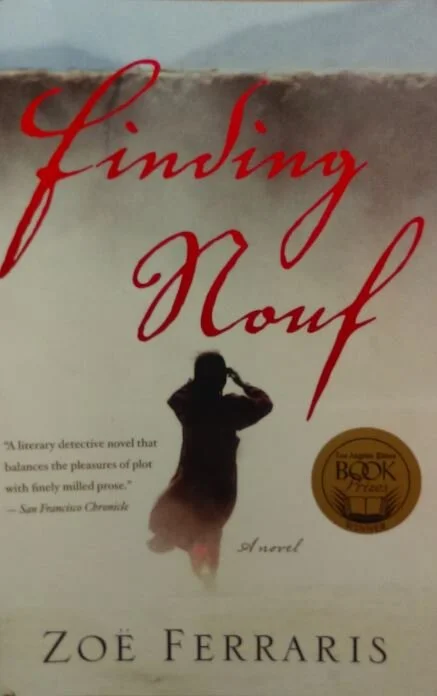Reading list
Kudos where kudos is due. I picked up a copy of Zoë Ferraris’s Finding Nouf while attending a book signing of Christopher Merrill’s Self Portrait with Dogwood at Elliott Bay Books in Seattle. Attached to the shelf where Finding Nouf sat was a hand-written placard praising the book. As a fan of travels to far places, I was hooked. The fact that it takes place among Bedouins in Saudi Arabia, a country we need to understand better, was an added factor.
Even better yet, the writing stands out: crisp, clear, vivid:
“Reaching the grave, he noticed something odd. The sand had not obscured the position of the body. She was wrapped completely in the kafan, but a slight bend in the knees indicated which way she was facing. . . . A family buries a woman with her back to Mecca only when she carries a baby in her belly, a baby whose face, in death, must be turned in the direction of the Holy Mosque.”
#
At that same book signing, I also picked up a copy of Richard Flanagan’s 1997 book The Sound of One Hand Clapping, based on my deep appreciation of his The Narrow Road to the Deep North. But I stumbled on the MFA-ness of Clapping:
“Some people say. . . that she rose with it like an angel into the forest beyond, flew like a spectre into the wild lands that lay at every compass point beyond that place that burnt like a fresh bullet hole in flesh.”
Okay, that's three “likes” in one sentence. Lyrical, yes, but maybe not for me. Distancing. Off-putting. A little exhausting, even. A little “like” [ironic phrase here] jumping three hurdles placed too close together. So I stopped reading and lent the book to a friend who “likes” flowery phrases with a suggestion that she pass it along when she finishes it. No deposit, no return.
Compare that to The Narrow Road to the Deep North, Flanagan’s 2013 tale of an Aussie lad who goes on to the war in Burma:
“As Dorrigo Evans watched, the red-hot tip touched his nail and it began to smoke as his mother burnt a hole through the cuticle. . . . And the smoke gave way to a small gush of dark blood from his thumb, and the pain of his blood blister and the terror of the red-hot carving knife were gone.”
This earns the same praise as Ferraris’s book: simple, straightforward, and most of all vivid. No “likes,” no “as ifs,” no hurdles to jump to reach the meaning. Just real, immediate story-telling. What Flanagan gives me is hope—that each book I write can be a bit better than the last, following Malcolm Gladwell’s credo. We writers start with words. We play with them, we amuse ourselves with them, we string them together to make stories. And with practice we learn that the stories are more important than the words. Ferraris nailed it with her first book. Flanagan grew into it. That’s a hard lesson. I’m still learning.
#
Merrill, Ferraris, and Flanagan are all drawing on what they know. Chris has lived through snipers and hit-and-run drivers and more. Ferraris was once married to a Saudi-Palestinian Bedouin. Flanagan’s father survived the Burma Death March. Some writers crib from Google and Wikipedia to create verisimilitude. I’ve written scenes that take place in Greece. In Japan. In Somalia. And Seattle. I’ve been to three out of four of those places. I’ll return soon to one of them (hint: dolmathes and souvlaki). And I’ll confess it’s easier to write about places I already know.




